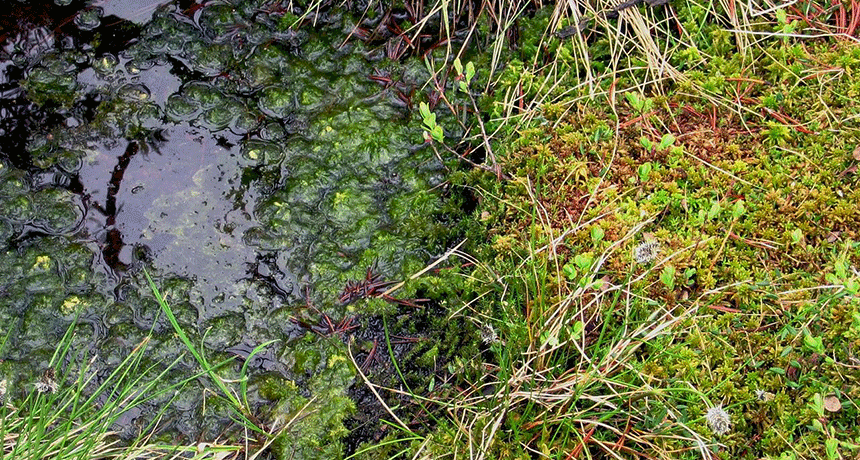acidic An adjective for materials that contain acid. These materials often are capable of eating away at some minerals such as carbonate, or preventing their formation in the first place.
bog A type of wetland that forms peat from the accumulation of dead plant material — often mosses.
climate The weather conditions that typically exist in one area, in general, or over a long period.
decay The process (also called “rotting”) by which a dead plant or animal gradually breaks down as it is consumed by bacteria and other microbes.
fuel Any material that will release energy during a controlled chemical or nuclear reaction. Fossil fuels (coal, natural gas and petroleum) are a common type that liberate their energy through chemical reactions that take place when heated (usually to the point of burning).
peat Largely decomposed plant material that develops in the absence of oxygen within a water-saturated site, such as a bog. When dried out, peat can be burned as a low-grade fuel.
wetland As the name implies, this is a low-lying area of land either soaked or covered with water much of the year. It hosts plants and animals adapted to live in, on or near water.

